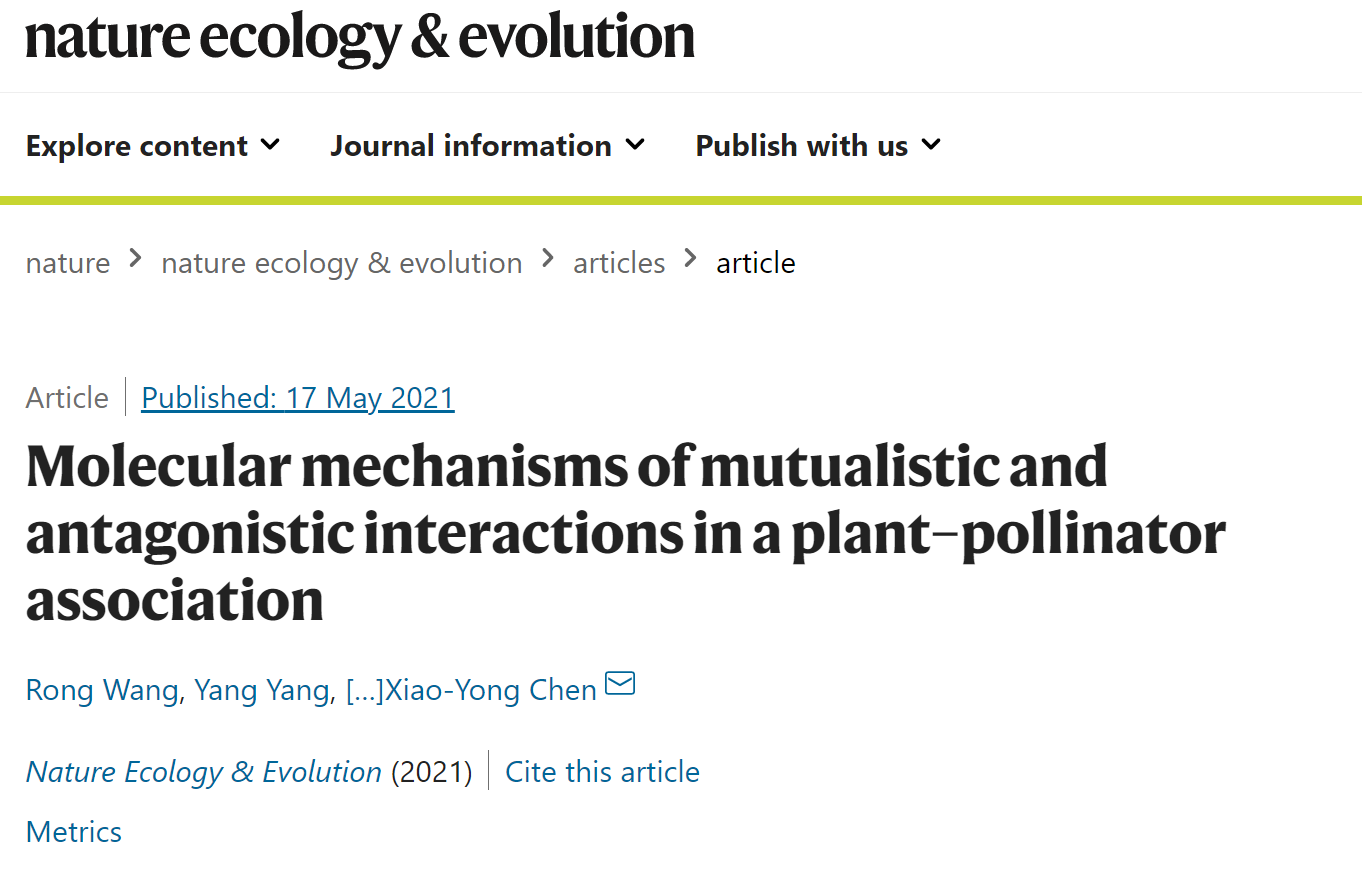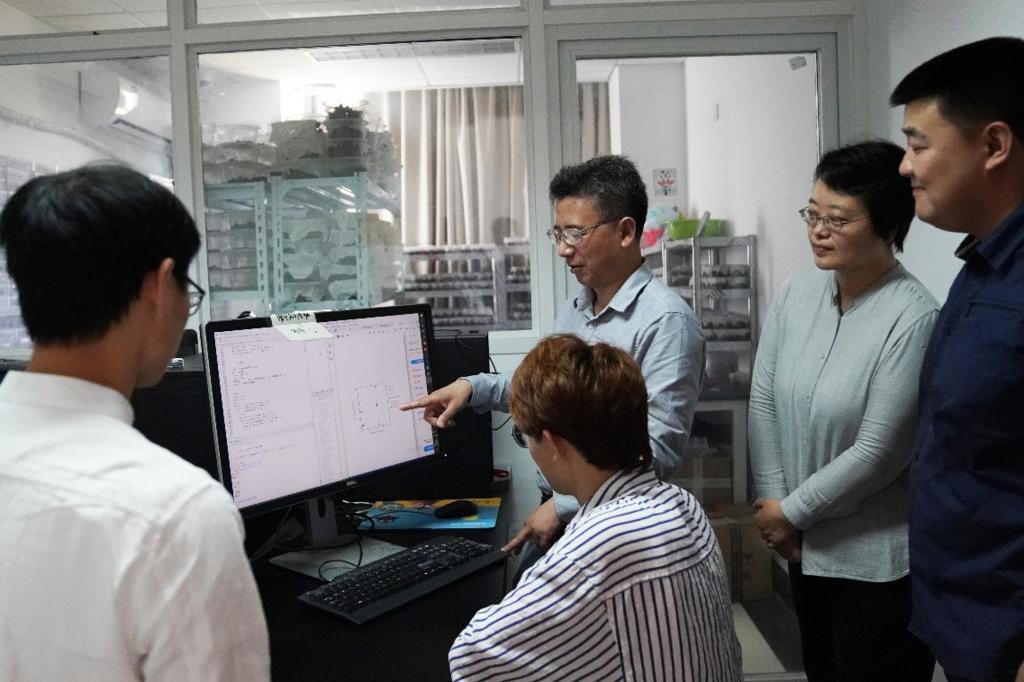On May 17, the research entitled “Molecular mechanisms of mutualistic and antagonistic interactions in a plant–pollinator association” was published online in a form of article inNature Ecology & Evolution. This work is achieved by the collaboration of 35 Chinese and international scholars from 20 universities and research institutes. In this study, the authors focused on the mutualism between Ficus pumila var. pumila and its specific pollinator Wiebesia pumilae and revealed the molecular mechanisms of reciprocal adaptation between plants and pollinating insects.

Many insects metamorphose from antagonistic larvae into mutualistic adult pollinators, with reciprocal adaptation leading to specialized insect–plant associations. However, it still remains unknown how such interactions are established at the molecular level, and therefore the authors assembled high-quality genomes of the two studied species. They then combined multi-omics with validation experiments to reveal molecular mechanisms underlying this specialized interaction.
During the mutualistic interaction (i.e., pollination), the researchers identified the specific compound attracting pollinators and validated the function of several key genes regulating its biosynthesis in the plant. For the pollinator, they found a highly reduced number of odorant-binding protein genes and an odorant-binding protein mainly binding the attractant. These uncovered the mechanisms underlying the high host-specificity of the pollinator.
During the antagonistic interaction, they found similar chemical profiles and turnovers throughout the development of galled ovules (ovules parasitized by pollinator larvae) and seeds, and a significant contraction of detoxification-related gene families in the pollinator. These results suggested that the pollinator has adapted to the specialized environments inside galled ovules.

Overall, their results showed that plant-pollinator mutualisms rely on interactive genes, establishing expectations for more diffuse pollination systems.

Partial members of Professor Xiao-Yong Chen’s research team
Dr. Rong Wang and Yang Yang from the School of Ecological and Environmental Sciences (SEES) of ECNU, Jing Yi from BGI Genomics, and Dr. Simon T. Segar from Harper Adams University are the first authors of this paper. Professor Xiao-Yong Chen from SEES of ECNU, Yu Hui from South China Botanical Garden of CAS, Stephen G. Compton from University of Leeds, and Yue Zhen from BGI Genomics are the corresponding authors.
Other institutes participating in the study included Xishuangbanna Tropical Botanical Garden of CAS, Mianyang Normal University, INRAE, Northwest University, University of Hull, the French Academy of Sciences, Sichuan University, Guangzhou University, University of Maryland, University of Illinois at Urbana-Champaign, Fujian Agriculture and Forestry University and Xiamen University.
Yu Zhang, Shan Chen, Yuan-Yuan Ding, Kai Jiang, Dr. Yuan-Yuan Li, Dr. Xin Tong and Jing-Jun Yang from SEES and Professor Hong-Qing Li from School of Life Sciences of ECNU also greatly contributed to this project. This research was funded by the key project (31630008) and the general programs (31870356, 31870359) of the National Natural Science Foundation of China.
Paper’s link: https://www.nature.com/articles/s41559-021-01469-1
Source:School of Ecological and Environmental Sciences
Copy Editor: Joshua Mayfield
Editor: Li Mengjie
